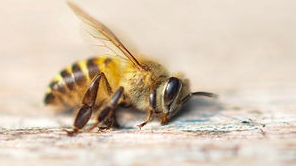
Method for synthesizing components of the pheromone for the Hythantrya cunea
The Fall webworm moth is a quarantine pest of fruit crops. Damaged crops: mulberry, Apple, plum, cherry, walnut, pear, quince, apricot, peach, cherry, rosehip (up to 230 species of woody and herbaceous plants). The species is native to North America, where the butterfly was distributed from Canada to Mexico. Since 1949, it has been recorded in Europe (Yugoslavia), where it settled from France to the Caspian sea. In 1952, it was discovered in the Transcarpathian region of Ukraine. In 1966, it was discovered in the Odessa region and in Moldova, in 1968 — in the Donetsk and Vinnytsia regions. Currently, it has spread to 11 regions of Ukraine, including Kherson, Kiev, Mykolaiv, Zaporozhye, Crimea, etc. In 2012, it was discovered in Vinnytsia, Zhytomyr and Dnepropetrovsk regions of Ukraine.Later it got to Central Asia: Turkmenistan (since the early 1990s), Uzbekistan (1996-1997), Kazakhstan, and Kyrgyzstan. In Japan, it has been known since 1945, from where it penetrated to Korea, China, Mongolia and the Primorye Territory. It is also a single species recorded in Lithuania. It lays eggs on the underside of the leaf in groups of 100-600 eggs. One female lays up to 1,500 eggs, while second-generation females are more fertile: each of them lays up to 2,500 eggs. The moth flight starts before or during the flowering of Apple. In Ukraine and southern Russia, two generations usually develop, and in some years there is an incomplete 3rd generation. Second-generation butterflies fly from mid-July to the end of August (depending on weather conditions).The founder of Biochemtech S. R. L., Boris G. Kovalev, in 1979, was one of the scientists who participated in the development of a method for synthesizing components of the pheromone of the Fall webworm moth.Today, there are more than thousands species of insect pests of fruit crops, and in most cases, farmers have large losses in the agricultural sector, some lose up to 100% of their crop.Based on many years of experience, WE can observe in practice how more and more farmers around the world are in search of an ecological solution to grow the crop safety and using conventional methods can not achieve their goals of crushing the number of pests.Today, Biochemtech S. R. L. is a leader in the synthesis of pheromones and insect attractant from pests, which have shown themselves in practice to effectively reduce the number of pests to the economic threshold of harmfulness.Environmental goods and the use of organic farming methods are gaining momentum around the world. Research is underway in the United States, Asia, and Europe. Are made investments of hundreds of millions of EUROS in projects such as integrated plant protection methods are increasing. Biochemtech S. R. L. working with countries in Europe, Africa, America and Asia, allows farmers to save their crops by ecological methods up to 95% (mass trapping and disorientation).Source:Scientific Exchange Program and the USSR Ministry of Agriculture.National Science Foundation Grant No. PCM78-13241.First results were first discolsed at the EUCHEM Conference on Chemistry of insects, held at Borgholm, Sweden, on August 13-17, 1979.Department of Entimology, New York State Agricultural Experiment Station, Geneva, NY14456.All-Union Scientific Reasearch Institute of Biological Methods for Plant Protection, 277031 Kishinev, Republic of Moldavia, USSR.https://en.wikipedia.org/wiki/Fall_webwormhttps://www.ogorod.ru/ru/now/pests/15280/Amerikanskaya-babochka-vstrechayte-novogo-sadovogo-vreditelya.htmhttps://animalreader.ru/amerikanskaya-belaya-babochka-opisanie-nasekomogo.htmlhttps://www.ogorod.ru/ru/now/pests/15280/Amerikanskaya-babochka-vstrechayte-novogo-sadovogo-vreditelya.htm





